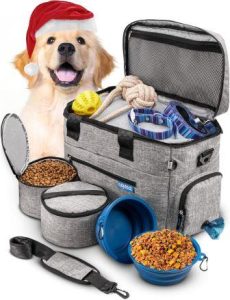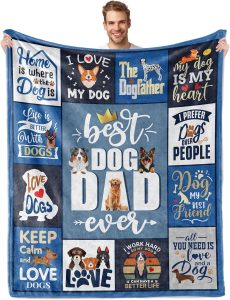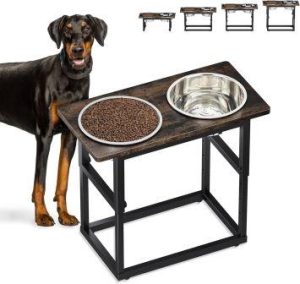Welcome to our guide where we discuss the question: can dogs eat onions? As dog owners, it’s important to be aware of the potential risks associated with certain foods, including onions. While onions may be a staple ingredient in our kitchens, they can actually be harmful to our furry friends.
In this article, we will dig deep into the topic of onion toxicity in dogs and explore the potential dangers onions pose to their health. We will explain why onions can be toxic, the specific substance that makes them harmful, and the symptoms and complications that may arise if dogs consume onions.
Feeding onions to dogs can have serious consequences, which is why understanding the risks is crucial. Even small amounts of onions can be detrimental to their well-being, and certain dog breeds may be more susceptible to onion toxicity. It’s essential to be informed to keep our beloved pets safe and healthy.
Key Takeaways:
- Onions are harmful to dogs and can cause onion toxicity.
- Onions contain a substance that can be toxic to dogs.
- Dogs may experience symptoms such as vomiting, diarrhea, and weakness if they consume onions.
- Feeding onions to dogs can lead to complications such as anemia and organ damage.
- It’s best to avoid including onions in a dog’s diet and opt for safe alternatives.
Understanding Onion Toxicity in Dogs
In this section, we will provide an in-depth understanding of how onions can be toxic to dogs. We will explain the specific substance in onions that poses a threat, as well as the symptoms and complications of onion toxicity in dogs.
“Onions can be highly toxic to dogs, and it’s important to be aware of the potential dangers,” says Dr. Emily Johnson, a veterinarian at Happy Paws Animal Clinic.
Onions contain a substance called thiosulphate, which is toxic to dogs. While humans can metabolize thiosulphate without any issues, dogs lack the necessary enzymes to break it down. As a result, thiosulphate can accumulate in a dog’s bloodstream and cause significant health problems.
The thiosulphate in onions damages the red blood cells in dogs, leading to a condition called hemolytic anemia. This condition can result in a decreased oxygen-carrying capacity and impaired organ function.
Common symptoms of onion toxicity in dogs include:
- Gastrointestinal upset, such as vomiting and diarrhea
- Lethargy and weakness
- Loss of appetite
- Pale gums
- Difficulty breathing
If left untreated, onion toxicity can lead to more severe complications, including organ damage and even death. It’s crucial to seek immediate veterinary attention if you suspect your dog has ingested onions or is exhibiting symptoms of onion toxicity.
Preventing Onion Toxicity
To keep your dog safe, it’s essential to prevent onion ingestion. Here are some tips:
- Avoid feeding your dog any foods that contain onions or onion powder.
- Be cautious with table scraps or leftovers that may contain onions, such as onion rings or onion-based sauces.
- Store onions securely in a location that is inaccessible to your dog.
- Educate family members and guests about the dangers of feeding dogs onions.
“As responsible pet owners, we need to be aware of the harmful effects of onions and take steps to protect our dogs,” Dr. Johnson advises.
The Risks of Feeding Onions to Dogs
Feeding onions to dogs can pose significant risks to their health. Even small amounts of onions can be harmful and can lead to onion toxicity in dogs. Onion toxicity occurs when dogs consume onions or foods that contain onions, resulting in damage to their red blood cells.
Onion toxicity in dogs can have both immediate and long-term effects on their health.
Immediate Effects of Onion Toxicity
- Vomiting and diarrhea
- Loss of appetite
- Abdominal pain
- Lethargy
These symptoms may appear within hours of ingestion and can range from mild to severe, depending on the amount of onions consumed and the size of the dog.
Long-Term Effects of Onion Toxicity
- Anemia
- Damage to internal organs
- Weakness and fatigue
- Increased susceptibility to infections
Repeated onion ingestion over time can lead to chronic health issues and compromise a dog’s overall well-being.
Breeds More Susceptible to Onion Toxicity
While all dogs are at risk of onion toxicity, some breeds may be more susceptible due to certain genetic factors. Breeds such as the Japanese Shiba Inu, Akita, and Alaskan Malamute have been found to be more vulnerable to the harmful effects of onions. It is important to note that all dogs, regardless of breed, should avoid consuming onions to prevent onion toxicity and its associated risks.
Next, we will explore dog-friendly alternatives to onions that can be included in their diet to provide safe and nutritious options.
Dog-Friendly Alternatives to Onions
When it comes to providing a safe and nutritious diet for our four-legged friends, it’s important to be mindful of the foods we offer them. While onions are harmful to dogs and should be avoided, there are plenty of delicious and healthy alternatives that can be incorporated into their meals. These dog-friendly human foods not only provide a flavorful twist but also offer a wide range of nutritional benefits for our canine companions.
1. Onion-free Diet for Dogs
If you’re looking to replace the flavor and texture of onions in your dog’s meals, consider the following alternatives:
- Garlic powder: While fresh garlic is also toxic to dogs, garlic powder can be used in small amounts to add a hint of savory flavor to their food.
- Herbs: Fresh herbs like parsley, basil, and rosemary can enhance the taste of your dog’s meals without posing any harm.
- Lean meats: Cooked meats such as chicken, turkey, and lean beef can provide protein and a satisfying taste for your furry friend.
2. Safe Vegetables for Dogs
If your dog enjoys vegetables, there are several safe options that you can incorporate into their diet:
- Carrots: Crunchy and packed with vitamins, carrots make a great low-calorie treat for dogs.
- Sweet potatoes: These delicious root veggies are rich in dietary fiber and provide important nutrients like vitamin C and beta-carotene.
- Green beans: A great source of vitamins and minerals, green beans can be steamed or lightly boiled as a healthy addition to your dog’s meals.
Remember, it’s always best to introduce new foods gradually and in moderation. If you have any concerns or questions about your dog’s diet, consult with a veterinarian to ensure their nutritional needs are met.
By choosing these dog-friendly alternatives to onions, you can provide a flavorful and nutritious diet for your furry friend while keeping them safe from potential harm. Remember, a well-balanced and varied diet is key to supporting your dog’s overall health and well-being.
Guidelines for Dog Nutrition
When it comes to ensuring the health and well-being of our furry friends, proper nutrition plays a crucial role. To help you maintain a balanced and healthy diet for your dog, we have compiled a set of guidelines that consider their specific dietary needs. By following these guidelines, you can make informed choices about what foods to include and avoid in your dog’s nutrition.
Consider Your Dog’s Specific Dietary Needs
Just like humans, dogs have unique nutritional requirements based on their age, size, breed, and overall health. It is essential to consult with your veterinarian to determine the specific nutritional needs of your dog. They can provide personalized advice and recommend the best diet plan to support your dog’s optimal health and longevity.
Ensure Proper Portion Control
Portion control is an essential aspect of maintaining a healthy weight for your dog. Overfeeding can lead to obesity, which can have detrimental effects on their overall health and increase the risk of various diseases. Follow the recommended serving sizes provided by your veterinarian or the dog food manufacturer and adjust them based on your dog’s activity level and metabolism.
Maintain a Balanced Diet
A balanced diet for dogs should consist of high-quality, appropriately balanced commercial dog food. Look for options that are specifically formulated to meet the nutritional needs of your dog’s life stage (puppy, adult, or senior) and consider any specific health concerns they may have. In addition to commercial dog food, you can include certain dog-friendly human foods in moderation to enhance variety and provide additional nutrients.
Please note that while some human foods can be beneficial, others can be harmful or toxic to dogs. It is crucial to be aware of the harmful foods for dogs and avoid including them in their diet.
Safe Vegetables for Dogs
Vegetables are a great option to add fiber, vitamins, and minerals to your dog’s diet. However, not all vegetables are safe for dogs. To help you make the right choices, here’s a table listing some dog-friendly vegetables:
| Safe Vegetables for Dogs | Unsafe Vegetables for Dogs |
|---|---|
| Carrots | Onions |
| Green beans | Garlic |
| Pumpkin | Tomatoes |
| Sweet potatoes | Mushrooms |
Remember that this is not an exhaustive list, and some dogs may have specific dietary restrictions or allergies. Always introduce new vegetables gradually and observe your dog for any adverse reactions. If in doubt, consult with your veterinarian.
By following these guidelines for dog nutrition, you can ensure that your furry friend receives a well-rounded and nutritious diet. Prioritize their specific dietary needs, maintain proper portion control, and make informed choices about the foods you include in their nutrition. A healthy diet is the foundation for a long and happy life for your beloved canine companion.
Conclusion
In conclusion, it is crucial to understand that onions can be toxic to dogs. Feeding onions to dogs poses serious health risks, and it is best to avoid including them in their diet. Onions contain a substance called N-propyl disulfide, which can cause damage to a dog’s red blood cells, leading to anemia.
The consumption of toxic foods for pets, such as onions, can result in symptoms such as vomiting, diarrhea, weakness, and even collapse. In severe cases, it can lead to a life-threatening condition known as Heinz body anemia. Therefore, it is essential to be aware of the potential risks and take necessary precautions to ensure the well-being of our furry companions.
To maintain a safe and healthy diet for our dogs, it is recommended to consult with a veterinarian for personalized advice. They can provide guidance on providing a varied and well-balanced nutrition plan that excludes harmful foods like onions. This ensures that our pets receive the nutrients they need without compromising their health.
Remember, the well-being of our pets is our responsibility. By staying informed about toxic foods for pets and making informed choices about their nutrition, we can help them live long, happy, and healthy lives.
FAQ
Can dogs eat onions?
No, dogs should not eat onions. Onions can be highly toxic to dogs and can cause a condition called onion toxicity. It is important to keep onions and foods containing onions away from your furry friend.
What makes onions harmful to dogs?
Onions contain a substance called thiosulphate which can damage a dog’s red blood cells, leading to a condition known as hemolytic anemia. This can cause symptoms such as weakness, lethargy, pale gums, and even organ damage in severe cases.
Are there any risks associated with feeding onions to dogs?
Yes, even small amounts of onions can be harmful to dogs. The severity of the toxicity depends on the size of the dog and the amount of onion consumed. All dog breeds can be affected by onion toxicity, but some breeds, such as Japanese Shiba Inus and Akitas, appear to be more susceptible.
What are some dog-friendly alternatives to onions?
There are plenty of safe and healthy alternatives to onions that you can include in your dog’s diet. Some dog-friendly human foods include carrots, sweet potatoes, peas, and green beans. These vegetables are not only safe for dogs but also provide essential vitamins and minerals.
What are the guidelines for dog nutrition?
Maintaining a balanced and nutritious diet is crucial for a dog’s overall health and well-being. It is important to consider your dog’s specific dietary needs, including their age, breed, and any pre-existing medical conditions. Portion control is also essential to prevent overeating and obesity. Consulting with a veterinarian can help you create a tailored nutrition plan for your dog.
Can dogs eat other toxic foods?
Yes, there are several other foods that can be toxic to dogs. Some examples include chocolate, grapes and raisins, avocado, caffeine, alcohol, and garlic. It is important to be aware of these toxic foods and keep them away from your furry friend.












